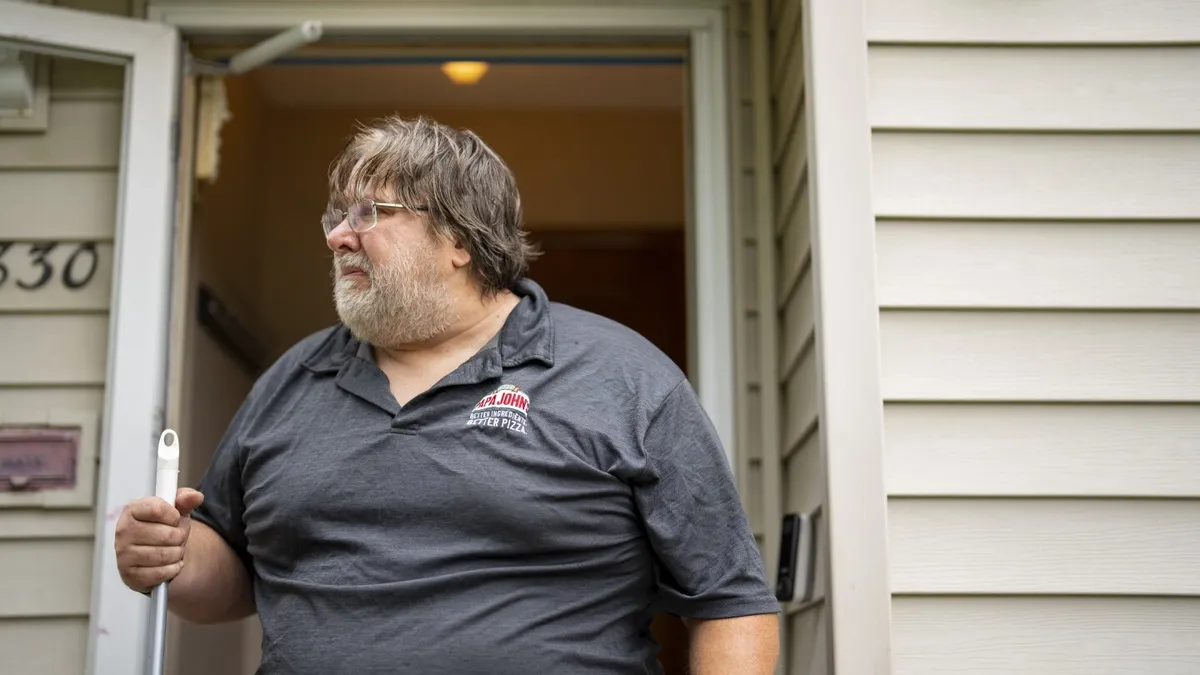
Hours after the tragic shootings of two Minnesota lawmakers over the weekend, authorities reached out to David Carlson to identify his lifelong friend in a harrowing photograph. Carlson, who had known and trusted Vance Boelter since childhood, was faced with a shocking reality. He barely recognized the 57-year-old in the surveillance image shown to him by the police, depicting Boelter wearing a flesh-colored mask during what authorities described as a political rampage. “The guy with the mask, I don’t know that guy,” Carlson recounted in a telephone interview with The Associated Press, reflecting on his decades-long friendship with a man he considered a brother. Boelter's involvement in such a violent attack was as surprising to Carlson as “getting struck by lightning.”
“There was a darkness inside of him,” Carlson shared. “He must have kept it hidden.” As law enforcement officials work to piece together Boelter’s movements and motivations, friends and family, including Carlson, are left to reflect on their interactions with the former pastor, questioning whether they missed any warning signs. Boelter, who was a married father of five, often stayed at Carlson’s home in Minneapolis to shorten his commute to work. In hindsight, Carlson observed that Boelter “was a sick man” who needed help, even if those around him did not realize it in time.
Law enforcement has cautioned that the motive behind Boelter’s actions could be more complex than what pundits might prefer to believe. However, Boelter’s own disjointed writings suggest he was determined to target Democrats. He has since been charged with federal murder and stalking, alongside state charges, for the fatal shootings of former Democratic House Speaker Melissa Hortman and her husband, Mark. Additionally, he is accused of wounding Democratic Senator John Hoffman and his wife, Yvette.
At the time of the shootings, Carlson noted that Boelter had been struggling to find work and was “disappointed” by the lack of responses from potential employers. In February, Boelter abruptly quit his job as a delivery driver for bodies from assisted living facilities to a funeral home. He returned to the Democratic Republic of the Congo for several weeks, where he had founded several companies focused on farming and fishing. Carlson expressed concern, stating, “I thought it was a mistake for him to quit his job. I didn’t think he was going to get anywhere with the Congo.”
Such life changes were in line with Boelter’s impulsive nature, according to Carlson. He recalled a time in the 1990s when Boelter was captured by security forces after sneaking into Gaza to preach Christianity during a trip to Israel. “That’s how crazy Vance is,” Carlson remarked. “He wasn’t supposed to be there.” Years prior, after his conversion to Christianity, Boelter had “burned all of his belongings,” including martial arts weapons, to eliminate distractions from his faith.
Boelter graduated in 1990 from an interdenominational Bible college in Dallas, earning a diploma in practical theology in leadership. The Christ For The Nations Institute expressed horror upon learning that Boelter was among its alumni, stating, “this is not who we are.” The church Boelter attended near Minneapolis echoed similar sentiments, condemning the shootings as “the opposite of what Jesus taught his followers to do.”
Boelter, who worked as a security contractor, showcased his views on abortion during a 2023 sermon delivered in the Democratic Republic of the Congo, asserting that “many churches don’t know abortion is wrong.” Carlson emphasized, “He wasn’t a radical cultist. He was just a regular Christian and kind of outspoken.” While Boelter openly expressed his disdain for Democrats, Carlson noted that the rhetoric never seemed threatening.
Both Carlson and another friend, Paul Schroeder, indicated they never heard Boelter discuss abortion or any of the officials who were targeted in the shootings. The FBI reported that Boelter had compiled lists containing the names and home addresses of numerous Minnesota public officials, predominantly Democrats. “It wasn’t like, ‘We gotta stop them, man,’” Carlson remarked. “But it chills me to think he was in his room writing that stuff in my house.”
Boelter occasionally visited a shooting range but was not considered fanatical about firearms, according to Schroeder. “I thought he was just collecting them for self-defense,” Carlson mentioned. “It was 1,000 miles away from stalking people and killing them.” On the day of the shootings, Carlson received a disturbing text message from Boelter, warning that he was “going to be gone for a while” and “may be dead shortly.” Initially interpreting the message as suicidal, Carlson checked on Boelter and even called the police, who were slow to connect his messages to the shootings. “Why throw your whole life away? God, he’s so stupid,” Carlson lamented. “He had everything.”
As the investigation continues, the community remains in shock, grappling with the implications of Boelter’s actions and the disturbing revelations about his life leading up to this devastating event.